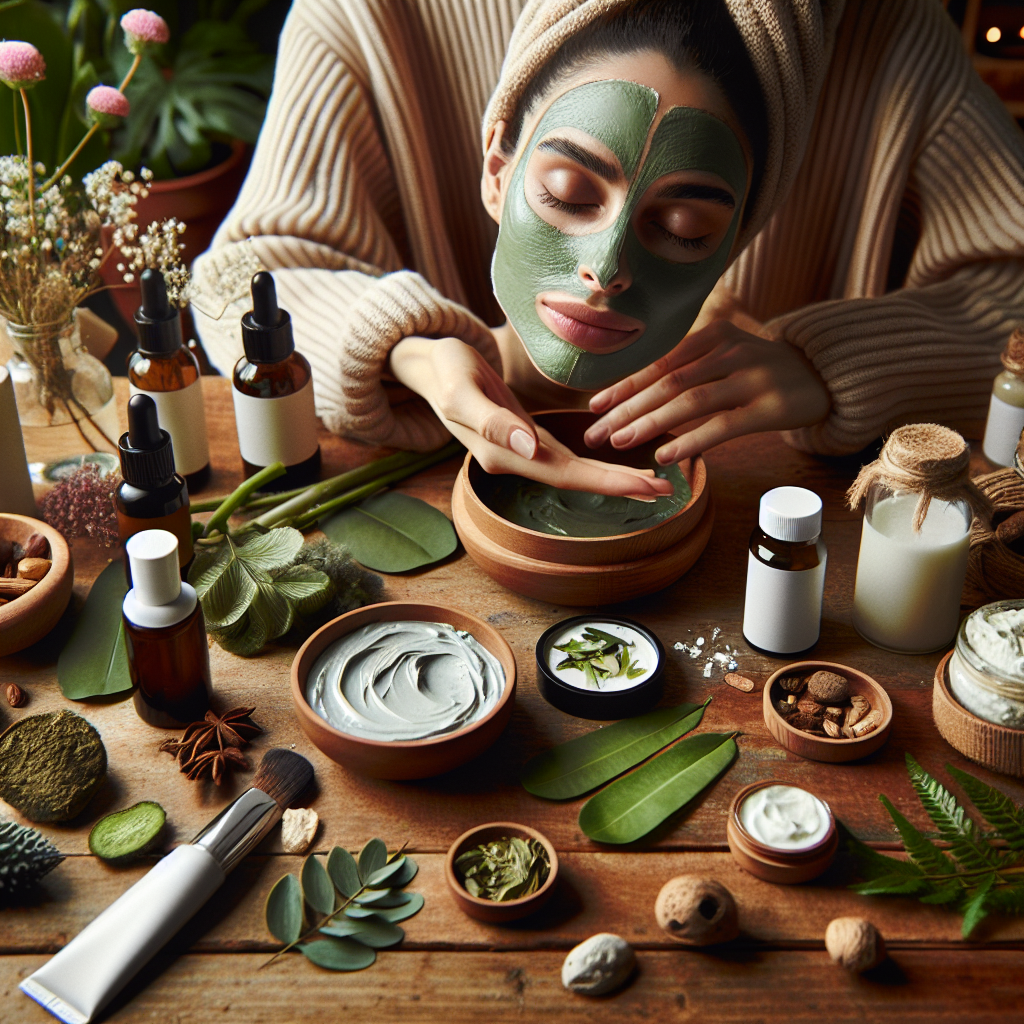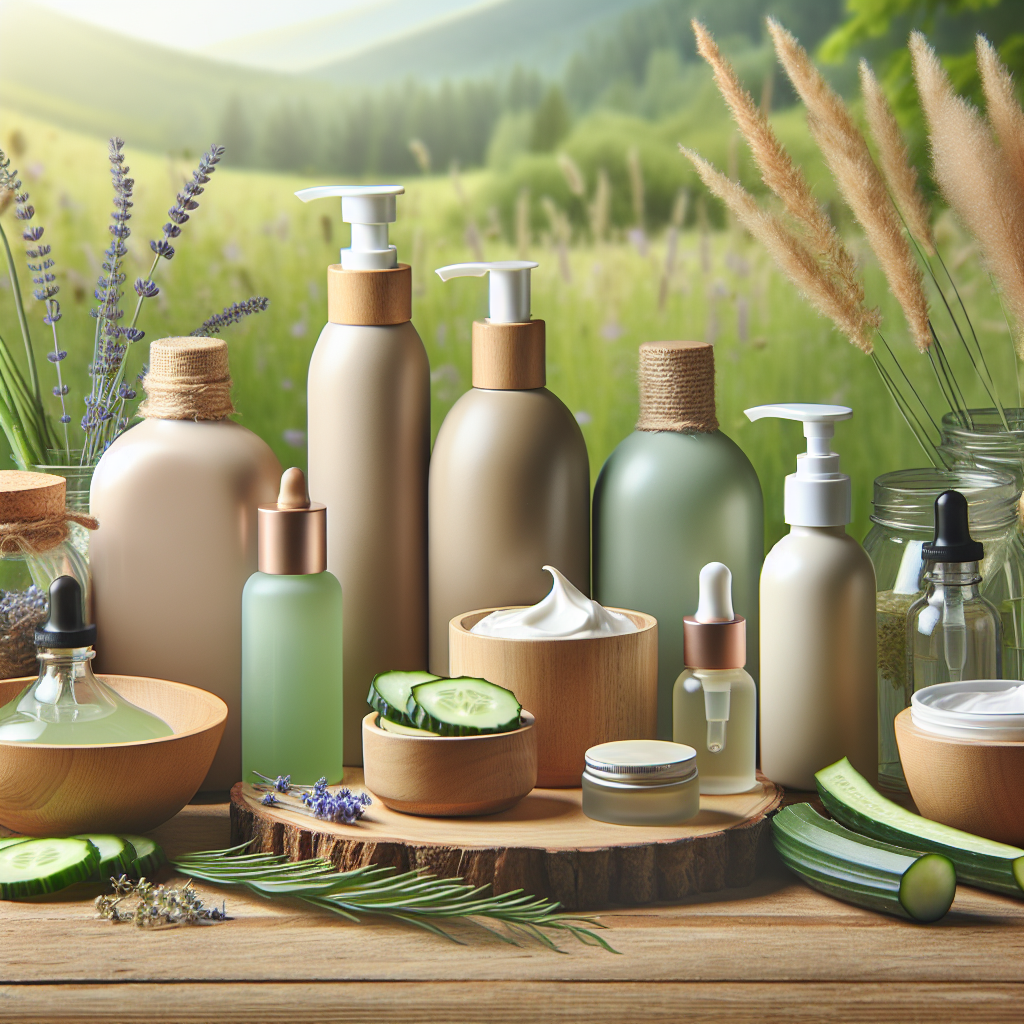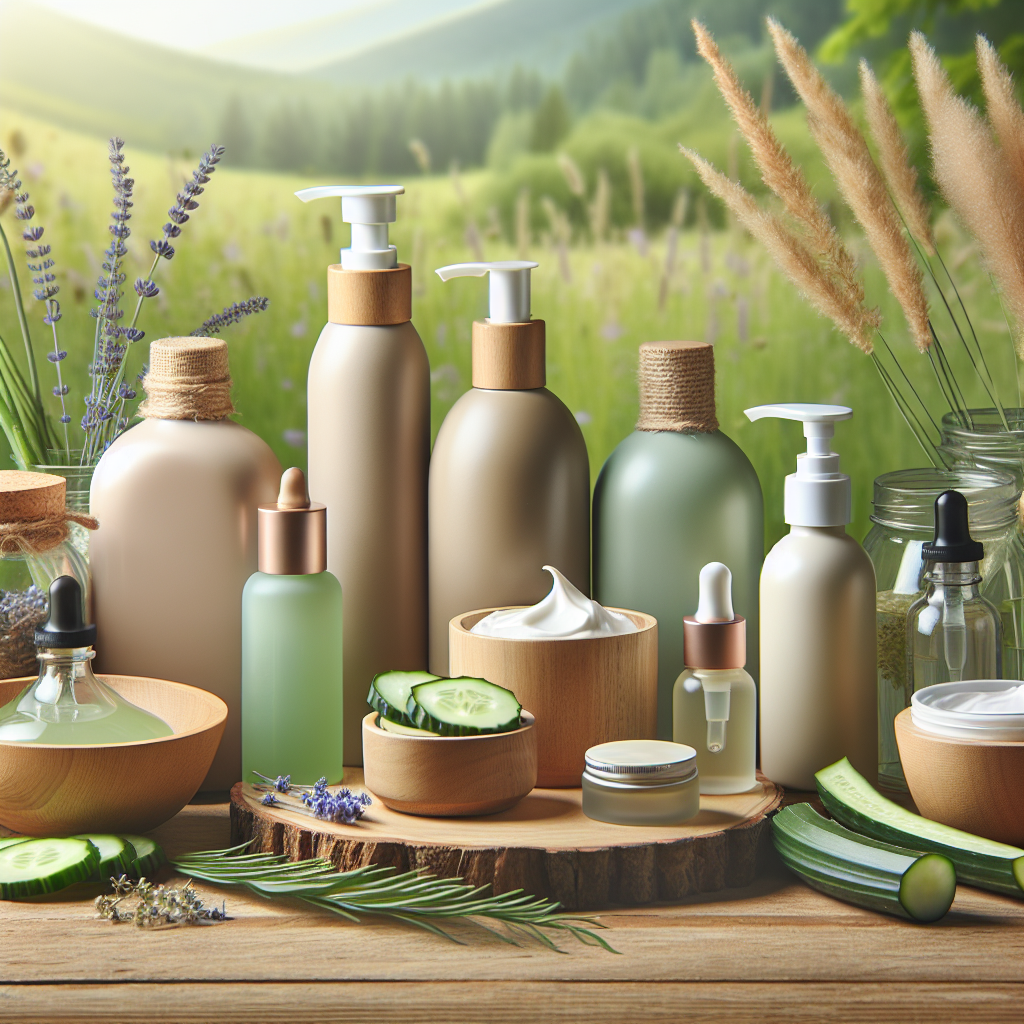In the world of skincare, a new trend has taken the beauty industry by storm: Vegan Skincare. This revolutionary approach to beauty products eliminates animal-derived ingredients and promotes cruelty-free practices, all while delivering effective and nourishing results for our skin. From vegan serums infused with botanical extracts to plant-based moisturizers bursting with vitamins, the options are endless. Discover the power of Vegan Skincare and embark on a journey towards a more ethical and sustainable beauty routine. Your skin will thank you, and so will our furry friends!

What is Vegan Skincare?
Vegan skincare refers to skincare products that do not contain any animal-derived ingredients and are not tested on animals. In simple terms, it means that these products are made without the use of animal by-products such as beeswax, lanolin, or collagen. Vegan skincare also emphasizes the use of plant-based ingredients and focuses on ethical and sustainable practices throughout the production process.
Definition of vegan skincare
Vegan skincare can be defined as a branch of skincare that exclusively uses plant-based ingredients and avoids any animal-derived components. This includes not only the active ingredients in the formulation but also any additives or preservatives used in the product. The goal of vegan skincare is to create beauty products that are not only effective in improving skin health but also align with ethical and sustainable principles.
Difference between vegan skincare and regular skincare
The main difference between vegan skincare and regular skincare lies in the ingredients used. While regular skincare products may contain animal-derived ingredients, such as honey or beeswax, vegan skincare products completely eliminate such components. Additionally, vegan skincare brands place special emphasis on avoiding animal testing, ensuring cruelty-free practices throughout the manufacturing process. This distinction allows consumers to choose skincare products that not only align with their beauty needs but also reflect their values and ethical beliefs.
Benefits of Vegan Skincare
There are several benefits to choosing vegan skincare products, beyond the ethical considerations. Let’s explore some of the key advantages of incorporating vegan skincare into your beauty routine.
Cruelty-free
One of the primary benefits of vegan skincare is that it is cruelty-free. Animal testing for cosmetic purposes is both unnecessary and cruel, often resulting in the suffering and harm of innocent animals. By choosing vegan skincare, we can actively support brands and products that do not engage in animal testing and have a clear commitment to ethical practices. This allows us to enjoy our skincare routine without any guilt or ethical concerns.
No animal-derived ingredients
Vegan skincare strictly avoids the use of any animal-derived ingredients. This means that the products are free from substances such as beeswax, honey, lanolin, or collagen, which are commonly found in many traditional skincare products. By eliminating these animal-based ingredients, vegan skincare reduces the risk of skin irritation or allergic reactions that may occur in individuals sensitive to such components.
Lower risk of skin irritation
Vegan skincare products tend to be formulated with natural, plant-based ingredients that are known for their soothing and nourishing properties. These ingredients, such as aloe vera, chamomile, and lavender, are often gentler on the skin and less likely to cause irritation or adverse reactions. By using vegan skincare, we can reduce the risk of experiencing skin discomfort and achieve a healthier complexion.
Environmental sustainability
Vegan skincare also promotes environmental sustainability. The production of animal-derived ingredients for skincare products can have a detrimental impact on the environment. The mass farming of animals, as well as the extraction of animal-derived substances, contributes to deforestation, greenhouse gas emissions, and the depletion of natural resources. By choosing vegan skincare, we can contribute to reducing our carbon footprint and supporting sustainable practices in the beauty industry.
Common Ingredients in Vegan Skincare
Vegan skincare relies on a variety of plant-based ingredients to deliver the desired skincare benefits. Let’s take a look at some of the common ingredients you may find in vegan skincare products.
Plant-based oils and butters
Plant-based oils and butters, such as coconut oil, shea butter, and jojoba oil, are commonly used in vegan skincare products for their nourishing and moisturizing properties. These oils and butters are rich in essential fatty acids and vitamins, which help hydrate the skin and restore its natural balance.
Essential oils
Essential oils are a popular ingredient in vegan skincare due to their aromatic and therapeutic properties. Tea tree oil, lavender oil, and rosehip oil are often used in vegan skincare products for their antibacterial, calming, and rejuvenating effects on the skin.
Fruit extracts
Fruit extracts, such as pineapple, papaya, and citrus extracts, are frequently incorporated into vegan skincare formulations for their exfoliating and brightening properties. These extracts contain natural enzymes and antioxidants that help to gently remove dead skin cells, revealing a more radiant complexion.
Vegan hyaluronic acid substitutes
Hyaluronic acid is a commonly used ingredient in skincare products for its ability to attract and retain moisture in the skin. In vegan skincare, plant-based alternatives to hyaluronic acid, derived from sources like seaweed or mushrooms, are used to provide similar hydrating benefits without the use of animal-derived ingredients.
Making the Transition to Vegan Skincare
Transitioning to a vegan skincare routine may seem daunting at first, but with some simple steps, it can easily become a seamless part of your beauty regimen. Here are some tips to help you make the switch to vegan skincare.
Understanding product labels
When choosing skincare products, it’s essential to familiarize yourself with the ingredients and labels. Look for products labeled as “vegan” or “cruelty-free” to ensure they do not contain any animal-derived ingredients and have not been tested on animals. Additionally, be cautious of misleading terms like “natural” or “organic,” as they do not necessarily mean the product is vegan.
Identifying non-vegan ingredients
Learn to recognize common non-vegan ingredients in skincare products. Some ingredients to watch out for include beeswax, lanolin, carmine, collagen, and keratin. Familiarizing yourself with these ingredients will make it easier to identify which products are vegan-friendly.
Researching vegan skincare brands
Take the time to research and discover vegan skincare brands that align with your values and skincare needs. Look for brands that prioritize ethical and sustainable practices, and have a wide range of vegan skincare products to choose from. Online reviews and recommendations from trusted sources can also be helpful in finding reputable vegan skincare brands.
Testing and experimenting with vegan products
Transitioning to vegan skincare is an opportunity to explore and experiment with new products. Start by incorporating small changes into your routine, such as swapping out your current moisturizer or cleanser with a vegan alternative. Pay attention to how your skin responds and adjust your skincare routine accordingly.

Popular Vegan Skincare Brands
There are several well-known vegan skincare brands that offer a wide range of products to cater to various skin concerns. Here are a few popular vegan skincare brands worth exploring:
Avalon Organics
Avalon Organics offers a variety of vegan skincare products that are free from harsh chemicals and synthetic fragrances. Their range includes cleansers, serums, and moisturizers formulated with natural and organic ingredients to nourish and revitalize the skin.
Pacifica
Pacifica is a vegan and cruelty-free brand that offers a diverse range of skincare products, from cleansers to masks and moisturizers. Their products are crafted with natural ingredients like coconut water, sea algae, and flower extracts, providing a refreshing and rejuvenating skincare experience.
Derma E
Derma E is a vegan skincare brand that focuses on harnessing the power of nature to create effective and sustainable skincare solutions. Their products are enriched with natural ingredients like Vitamin C, hyaluronic acid substitutes, and plant-based oils, designed to address various skin concerns.
Youth to the People
Youth to the People is a vegan skincare brand that aims to create innovative formulations using superfood ingredients. Their range includes cleansers, serums, and moisturizers packed with antioxidant-rich ingredients like kale, spinach, and green tea, promoting healthy and vibrant skin.
Creating a Vegan Skincare Routine
Creating a vegan skincare routine involves incorporating specific steps to nurture and care for your skin. Let’s explore the essential components of a vegan skincare routine.
Cleansing
Start your skincare routine with a gentle vegan cleanser to remove dirt, impurities, and makeup from your skin. Look for cleansers formulated with natural ingredients like aloe vera or chamomile to soothe and hydrate your skin while effectively cleansing it.
Exfoliating
Exfoliation helps to remove dead skin cells and unclog pores, revealing a smoother and brighter complexion. Use a vegan exfoliant containing natural ingredients like fruit extracts or gentle plant-based exfoliants to avoid harsh chemicals and microbeads.
Toning
Toning helps to balance the pH of your skin and prepare it for better absorption of serums and moisturizers. Look for vegan toners that are free from alcohol and harsh chemicals, and instead feature natural ingredients like witch hazel or rosewater to refresh and hydrate your skin.
Moisturizing
Hydration is a crucial step in any skincare routine. Choose a vegan moisturizer rich in nourishing ingredients such as plant-based oils, hyaluronic acid substitutes, or herbal extracts, to replenish moisture and lock it into your skin.
Using sunscreen
Protecting your skin from harmful UV rays is essential for maintaining its health and preventing premature aging. Look for a vegan sunscreen with broad-spectrum protection and a formula that is lightweight and non-greasy.

DIY Vegan Skincare Recipes
If you prefer a more hands-on approach, creating your own vegan skincare products at home can be a fun and cost-effective way to personalize your beauty routine. Here are some simple DIY vegan skincare recipes to try:
Homemade vegan face masks
Mix mashed avocado, aloe vera gel, and a few drops of lavender essential oil for a hydrating face mask. Apply the mixture to your face, leave it on for 15-20 minutes, then rinse off with warm water for deeply nourished and glowing skin.
DIY vegan body scrubs
Combine coconut oil, brown sugar, and a squeeze of lemon juice to create an exfoliating body scrub. Gently massage it onto your skin in circular motions to remove dead skin cells and reveal smoother, softer skin.
Natural vegan moisturizer recipes
Create a natural vegan moisturizer by melting shea butter and coconut oil together. Allow the mixture to cool and solidify, then whip it until light and fluffy. Apply the moisturizer to your skin for long-lasting hydration.
Addressing Common Concerns
There may be some common concerns and misconceptions regarding vegan skincare. Let’s address these concerns to gain a better understanding of vegan skincare’s effectiveness and suitability for different skin types.
Can vegan skincare be effective?
Yes, vegan skincare can be just as effective as non-vegan skincare. The efficacy of skincare products depends on the quality and formulation of the ingredients used. Vegan skincare often incorporates potent plant-based ingredients that provide numerous benefits for the skin.
Is vegan skincare suitable for all skin types?
Vegan skincare can be suitable for all skin types. The wide variety of vegan skincare products available allows individuals to find options that cater to their specific needs, whether they have dry, oily, sensitive, or combination skin. However, it is always important to conduct a patch test on a small area of skin before incorporating new products into your routine to ensure compatibility and prevent any allergic reactions.
Are vegan skincare products more expensive?
Vegan skincare products can vary in price, just like any other skincare products on the market. While some vegan brands may be more expensive, there are also affordable options available. It’s important to consider factors like the quality of ingredients and ethical practices when evaluating the value of a skincare product.
Can vegan skincare prevent signs of aging?
Vegan skincare can help to prevent signs of aging by providing the skin with essential nutrients, hydration, and antioxidants. Many vegan skincare products are formulated with ingredients that promote collagen production, protect against free radicals, and improve skin elasticity. However, it’s important to note that the effectiveness of any skincare product in preventing signs of aging can vary depending on individual factors and overall skincare routine.
Tips for Finding Vegan Skincare in Stores
Finding vegan skincare products in stores can sometimes be a bit challenging, especially when it comes to deciphering ingredient labels. Here are some tips to help you navigate the process:
Reading labels and ingredient lists
Carefully read the labels and ingredient lists of skincare products to ensure they are vegan. Look for products explicitly labeled as “vegan” or “cruelty-free” and carefully review the ingredient list to ensure no animal-derived ingredients are present.
Avoiding common non-vegan additives
Learn to identify common non-vegan additives by familiarizing yourself with ingredient names often used in non-vegan skincare products. Some examples include lanolin, beeswax, carmine, gelatin, and collagen. Avoiding these ingredients will help you select genuinely vegan products.
Seeking certifications and cruelty-free logos
Look for certifications and cruelty-free logos on the packaging of skincare products. Certifications from reputable organizations such as Leaping Bunny or PETA can provide assurance that the product is vegan and has not been tested on animals.
Conclusion
Vegan skincare offers numerous benefits, including being cruelty-free, free from animal-derived ingredients, more suitable for sensitive skin, and environmentally sustainable. By understanding the difference between vegan skincare and regular skincare, exploring common ingredients, and knowing how to create a vegan skincare routine, you can make informed choices to enhance your skincare regimen. With an array of vegan skincare brands available and the option of DIY skincare recipes, transitioning to vegan skincare has never been easier. So go ahead, embrace the power of plant-based beauty and enjoy a naturally glowing complexion with vegan skincare.




